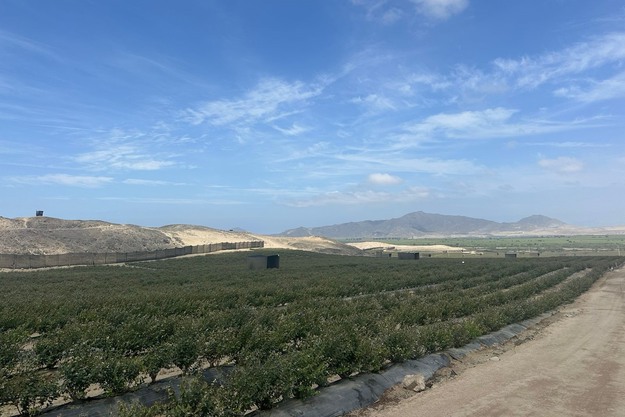"So far, the season's been good, price-wise. That's all thanks to volumes, of course. From the beginning of the season until early November, supply was relatively limited, which led to very high prices. As more volume comes in, prices fall," says Roberto Latorre of Gloria Agro Foods, the Dutch branch of Peru's Gloria Group.

The company grows and markets products like blueberries, avocados, grapes, and limes. For the rest of the season, which runs until February, Roberto hopes supplies from Peru remain stable and prices stay at the current acceptable level. "Then we could consider it a great season."
Gloria Agro Foods supplies blueberries year-round, mostly from its parent company in Peru. "We also import blueberries from countries such as Spain and Morocco," Roberto explains. The company is looking to expand its production even outside Peru. "We want to grow further with new varieties that will soon be planted in Peru. After that, we're considering expanding in Europe or Morocco."
Labor and logistics
Labor costs remain a major concern. "In Europe, labor is becoming increasingly expensive, while blueberry cultivation is very labor-intensive, especially during harvest. So it's crucial to keep regions with lower labor costs in mind," Roberto adds. Along with labor costs, land and water availability also affect their expansion plans within Europe.

Sales to Asia currently have a small but growing role at the Gloria Group. Latorre thinks the new port in the Peruvian city, Chancay, being built under the direction of Chinese shipping company Cosco, can stimulate this growth. "The new port will reduce transit time to the Far East to 23 days, making trade from South America to Asia more attractive."
Logistics, though, remains challenging. Roberto notes that transit time is regularly delayed in the second half of the season. "There are often delays of three to five days. We can partly overcome that by tight scheduling, but it's not ideal," he says.
Packaging and consumption trends
Most of Gloria Agro Foods' blueberries arrive in bulk in the Netherlands. "We package them mainly in plastic for retailers." They have tested alternative packaging materials like paper, pulp, and cardboard, but those remain niche. "Such sustainable packaging is costly, and the market segment is still small. At retailers, most blueberries are packed in plastic," Roberto points out.
A noteworthy trend is the rise in larger packaging sizes. "Where 125g packages used to be the norm, we now more often see packages of 300, 400, or even 700g. That's due to increased consumption and production. For both importers and retailers, larger packages are often more interesting. I expect this trend to continue," Roberto concludes.
 Roberto Latorre
Roberto Latorre
Gloria Agro Foods
Peterselieweg 110/112
2988 DH Ridderkerk
Tel: +31 (0)180 447 801
Mob: +31 (0)6 21 97 22 37
[email protected]










